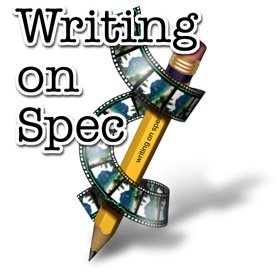Exactly What is a Great Script?
As you read books, articles and attend seminars, the one thing you're trying to do is to write a great script. Everybody in Hollywood is looking for a great script. However, you can't say that a good/great movie necessarily came from a great script (or that a great script makes a great movie). Often, both are good, but the experience is different for each medium.
I remember when I first got interested in screenwriting, I read a ton of scripts. Really. I was lucky enough to work a few floors away from the Film Office in Virginia and they had stockpiles of scripts that were free for the copying (ah, the good old days).
The problem with a lot of scripts is not their quality, but that not all of them fit the same molds. You can read one book and see a few script examples, but not many books take scripts from start to finish as an example. If they do, it's typically a handful, and typically not made within the last 20 years.
This is a problem for writers since there are plenty of movies available, plenty of scripts available, but we gravitate towards the material that interests us. However, those scripts are probably not broken down and if they are, not completely.
There are some great scripts out there. Scripts that once you start reading, you find it hard to put down, regardless of how many times you've read it. I look back and some of the scripts I've loved and, much to my chagrin, they're all freakin' old.
A Few Good Men - Aaron Sorkin
The American President - Aaron Sorkin
Die Hard - Jeb Stuart
Lethal Weapon - Shane Black
Notting Hill - Richard Curtis
Four Weddings and a Funeral - Richard Curtis
Unforgiven - David Webb Peoples
Toostie
I have a ton of downloaded scripts (which I think are great for education), but these days I don't print them and finding a couple hours to start at the monitor is a tough one.
The problem is to differentiate between a movie you like/love and the script. The two are not always the same. I loved the film There's Something About Mary, but the script didn't read as well. The stuff was still funny, but it didn't have the drive that other scripts have had for me.
So while it's important to watch films and break them down, don't undervalue the importance of actually reading the written word. If writing a script is what you want to do, then you really do need to spend some time reading them to get a good idea of the pacing, the flow and the beauty of the language you're putting on paper (or screen). The better writers have a way of keeping your interest through what appear to be the most mundane actions.
What are some of your favorite scripts?
Labels: Screenwriting

5 Comments:
Hannibal by Steve Zaillian, Hotel Rwanda by Keir Pearson/Terry George, The Thing by Bill Lancaster, Oceans 11 by Ted Griffin... also as far as scripts go I thought Wedding Crashers and 40 Year Old Virgins were better on the page than the screen
I find "The Sixth Sense" compelling every time I read it.
Agree with Webs...'Sixth Sense' was a very good read...I have a fondness for 'The Matrix' script...but your list is pretty good Dave - I have every one.
Witness
The Green Mile
Ditto on Witness. EXCELLENT script and a great example of a very traditional, three act structured script.
A couple more great reads:
Gods and Monsters
The Last Picture Show
Post a Comment
<< Home